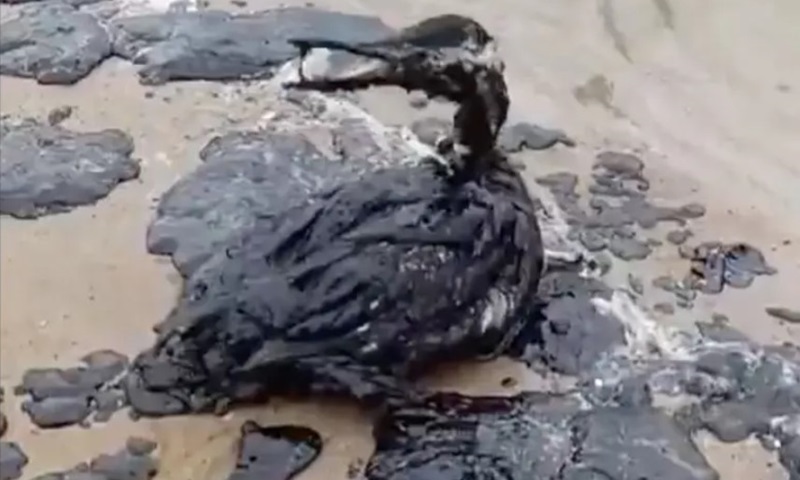Oil washes up along Black Sea coastline following triple
Russian Tanker Disasters Cause Environmental Crisis

Recent incidents involving aging Russian tankers have led to significant oil spills in the Kerch Strait, raising environmental concerns. The strait, which connects the Sea of Azov to the Black Sea, has seen a troubling increase in pollution due to these maritime disasters. As footage of the aftermath circulates on social media, the impact on local wildlife and ecosystems becomes increasingly evident. This article explores the details of the spills, the condition of the tankers involved, and the potential long-term effects on the environment.
Oil Spills and Their Immediate Impact
The recent oil spills have resulted in thousands of tonnes of heavy mazut washing ashore along the Kerch Strait. Reports indicate that approximately 3,700 tonnes of this low-quality oil product spilled into the water after two tankers were severely damaged by stormy weather over the weekend. The situation worsened when a third tanker, also belonging to the same company, experienced hull failure, leading to further leakage of fuel oil into the sea.
Footage shared on social media shows distressing scenes of birds covered in oil along the affected shorelines. This highlights the immediate threat to local wildlife, as oil spills can have devastating effects on marine and coastal ecosystems. The mazut, a viscous and toxic substance, poses a significant risk to birds and other animals that rely on clean water and healthy habitats. Experts warn that the consequences of such spills can last for years, affecting not only the wildlife but also the livelihoods of local communities that depend on fishing and tourism.
As more oil is expected to wash up along the coastline in the coming days, the urgency for cleanup efforts increases. Environmental organizations and local authorities are likely to mobilize resources to address the crisis, but the effectiveness of these efforts remains to be seen. The situation serves as a stark reminder of the vulnerabilities associated with aging maritime infrastructure and the potential for catastrophic environmental incidents.
Aging Tankers and Regulatory Concerns
The tankers involved in these spills are over 50 years old and are primarily designed for river transport. Their age and design make them ill-suited for the turbulent conditions of the Black Sea, especially during storms. The recent incidents raise serious questions about the safety and regulation of such vessels. Many of these outdated tankers operate under minimal oversight, posing a risk not only to the environment but also to maritime safety.
The fact that these vessels constitute a significant portion of the global fleet—approximately 17%—is alarming. The reliance on aging ships for transporting oil and other goods highlights a critical gap in maritime regulations. Experts argue that stricter regulations and better enforcement are necessary to prevent future disasters. This includes regular inspections, mandatory upgrades, and, in some cases, the retirement of older vessels that no longer meet safety standards.
As the situation unfolds, it is crucial for regulatory bodies to take action. The recent spills should serve as a wake-up call for governments and international organizations to prioritize maritime safety and environmental protection. Without significant changes, the risk of further incidents remains high, threatening both marine ecosystems and coastal communities. The need for a comprehensive approach to maritime regulation has never been more urgent.
